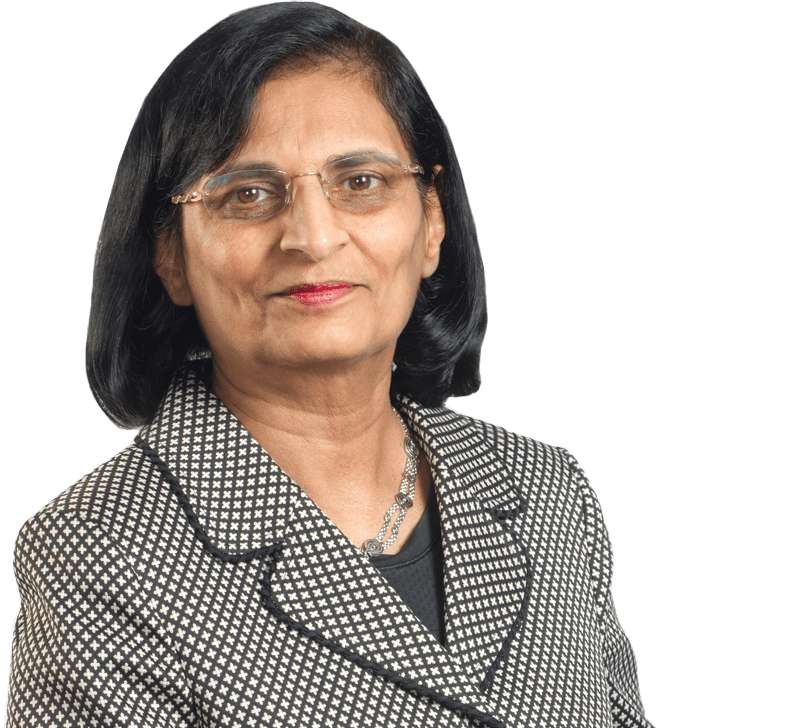The way I view the world, my values and beliefs, and hence the way I relate to people, have all been shaped by Mawlana Hazar Imam’s guidance. Take, for instance, our Imam’s emphasis on the importance of education and lifelong learning. Why this emphasis? I recall his explanation decades ago about the flexibility this gives to an individual, well ahead of the era of globalisation.
Obtaining a degree and then working for a lifetime in a single company is no longer the norm. This means that in addition to budgeting carefully, spending thoughtfully, and living within our means, constantly acquiring knowledge is essential in order to navigate the economic and social challenges of today and tomorrow.
Learning throughout our lives can help us to prepare for uncertainty, for societal changes, and for global shifts. The ones we are currently experiencing will not be the last.
Our Imam has often spoken about working together in order to build the knowledge societies of the future. In Cairo in 2006, he said that, “From the very beginnings of Islam, the search for knowledge has been central to our cultures... In his teachings, Hazrat Ali emphasized that ‘No honour is like knowledge.’ And then he added that ‘No belief is like modesty and patience, no attainment is like humility, no power is like forbearance, and no support is more reliable than consultation.’”
“What he thus is telling us is that we find knowledge best by admitting first what it is we do not know, and by opening our minds to what others can teach us.”
Learning from others
Mawlana Hazar Imam reminds us that nobody succeeds all on their own. Afterall, we cannot know everything. So while success rarely comes without real courage, sacrifice, and a lot of discipline, it also requires working with, and learning from others. You need to possess not only self-belief but also belief in the power of building trust by working with others.
As technology plays an increasingly greater role in our lives and our work, the skills needed for the future are likely to be centred on what makes us human. In other words, we need to develop attributes that computers and robots do not have. Skills such as creativity, emotional intelligence, critical thinking, people management, leadership, and working with others are crucial in order to ‘future-proof’ ourselves and our financial security.
While collaboration takes effort and can sometimes be difficult since we are each wonderfully unique, the advantage is that you may draw on diverse opinions, knowledge, and experiences. Effective collaboration requires all parties to be inclusive and listen actively to differing views before making decisions. This has helped me in my career to develop strong teamwork skills, which in turn helped with more meticulous planning and sound execution.
Helping others
Colleagues are important — but so are your family, friends, and the community. Alongside one’s faith, your support network and the wider community can give you strength when you are tired, offer healing when you are hurt, and provide comfort when things go wrong.
And by the same token, there will be times when they may need you. Hazar Imam explained on 21 October 1986 in Nairobi, “We have all seen examples of God's most wonderful creature, the person - whether in a government bureau, a business, or a private development agency - who is inspired to give generously of himself, to go beyond the mechanical requirements of a task.”
“Such men and women, paid or unpaid, express the spirit of the volunteer — literally the will to make a product better, a school the very best, a clinic more compassionate and effective. Their spirit, generating new ideas, resisting discouragement, and demanding results, animates the heart of every effective society."
So when you're called on to give support, give it readily and without expectation of anything in return. Good work is never wasted, and offering service on a voluntary basis can help you to feel more content. “Enlightened self-fulfilment” is a phrase that Hazar Imam used in February 2014 in Ottawa.
Building your own capabilities
YasminJ

Finally, during more difficult times, I find that it can help to have the same structure as on “normal” days, as this makes it easier to overcome setbacks. That includes maintaining a positive attitude as often as I can, remembering my faith, and allocating part of the day to develop further my knowledge and skills, as well as to do some things I enjoy - what I like to call R&D, or Relaxation and Development.
Many organisations have been thinking about what the future of work will look like. The recent World Economic Forum's Future of Jobs report states that by 2025, 50% of all today’s employees will need reskilling, as adoption of technology increases. Interestingly, the time required for a significant proportion is between two and six months – meaning that these skills can be acquired reasonably quickly by being committed.
The more you develop your skills, I find the more control you take over your destiny. Because skills empower you. Skills give you more freedom. They give you somewhere you can stand your ground and have your say.
Make sure you know what you want; make sure you have what it takes to get what you want; then go for it. And keep going; and going; and for good measure keep going again.








